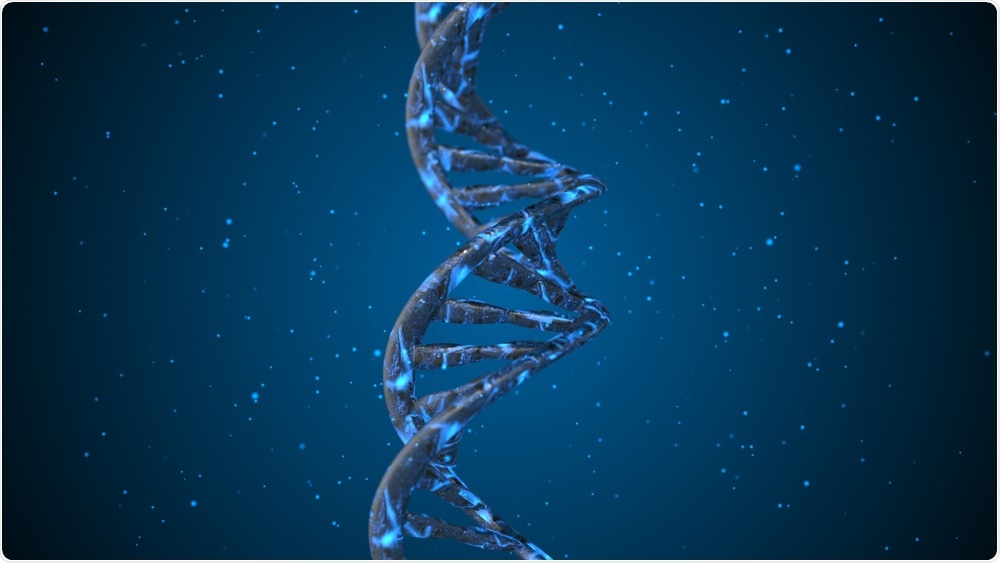
The researchers, who published their work in Nature Neuroscience on September 23, 2019, used blood gene expression analysis to identify the underlying mechanisms and biomarkers associated with ASD, which can both help in achieving early diagnoses and enable doctors to predict the severity of ASD symptoms in patients.
The study suggests that the main cause of autism is prenatal brain development being affected by genetic factors.
The gene network in question is closely involved in fetal brain development and has also been found to be dysregulated in ASD cellular models.
The researchers combined the data collected from the study participants’ blood gene expression with neuron models to discover the dysregulation in this common gene network.
“We found that many of the known ASD risk genes regulate this core network and hence their mutations can disrupt this developmentally critical network,” explained first author Vahid H. Gazestani, PhD.
Co-senior author Nathan E. Lewis, Ph.D., an associate professor of pediatrics and bioengineering explained that ASD genetics are “extremely heterogeneous”, continuing on to say:
Hundreds of genes have been implicated, but the underlying mechanisms remain murky. These findings identify how ASD genetics dysregulate a core network that influences brain development at fetal and in the very early years of life and, consequently, the severity of later ASD symptoms."
Although current methods of diagnosing ASD rely on the identification of behavioral symptoms from abnormal facial expressions, impaired communication skills and difficulties in social interaction, these new findings could form the foundation for early diagnosis, and provide a more solid basis to build diagnoses on.
Co-senior author Eric Courchesne, PhD, professor of neuroscience and co-director of the UC San Diego Autism Center of Excellence, said: “There is an urgent need for robust tests that can identify the disorder and its expected severity at very early ages so that treatment can start early, enabling a better outcome for each child.”
Early diagnoses are notoriously difficult
Biological research is often focused on finding biomarkers for the condition, with current research aimed at discovering signs that can be used to determine risk factors and make early diagnoses.“There have been intense research efforts to identify the genetic basis of ASD, with an assumption that the genetic markers can be utilized as essential biomarkers in the diagnosis of, and the development of pharmacological treatments for, ASD,” a genetic research review on autism spectrum disorder published in Experimental Neurobiology stated.
The researchers of this new, 2019 study found that symptoms were more severe in boys later on in life if their gene network had been more severely affected during brain development stages.
“Increasingly, evidence indicates that ASD is a progressive disorder that, at prenatal and early postnatal stages, involves a cascade of molecular and cellular changes, such as those resulting from dysregulation of signaling pathways and networks,” explained Courchesne.
“Our evidence suggests that abnormal signals from known ASD risk genes may be channelled through this important gene network,” said Gazestani, “and that, in turn, sends signals that alter fetal and postnatal brain formation and wiring patterns.”
The authors warned that the results do need to be replicated in more extensive studies, but the data they discovered is in line with previous studies carried out by Courchesne and Lewis’ laboratories detailing the importance of blood gene expression data in ASD diagnosis.
Additionally, it is important to note that females were not included in this study, and their inclusion in future studies is important when considering diagnosis of autism in women comes significantly later than in men:
The study shows that through analyses of gene expression from ordinary blood samples, it is possible to study aspects of ASD’s fetal molecular origins, uncover the functional impact of hundreds of ASD risk genes that have been discovered over the years, and develop clinical tests of ASD diagnosis and severity prognosis.”
Journal reference:
Gazestani, V. H. et al. (2019). A perturbed gene network containing PI3K–AKT, RAS–ERK and WNT–β-catenin pathways in leukocytes is linked to ASD genetics and symptom severity. Nature Neuroscience. https://www.nature.com/articles/s41593-019-0489-x.






No comments
Post a Comment